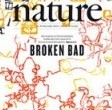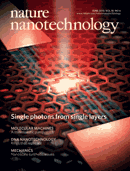 A team of Columbia University biologists has retracted a 2013 Nature paper on the molecular pathways underlying Alzheimer’s disease, the second retraction from the group after a postdoc faked data.
A team of Columbia University biologists has retracted a 2013 Nature paper on the molecular pathways underlying Alzheimer’s disease, the second retraction from the group after a postdoc faked data.
An April report from the Office of Research Integrity (ORI) found the a first author, former Columbia postdoc Ryousuke Fujita, responsible for “knowingly and intentionally fabricating and falsifying research in seventy-four (74) panels” in three papers: a 2011 Cell paper retracted in 2014, an unpublished manuscript, and this now-retracted Nature paper, “Integrative genomics identifies APOE e4 effectors in Alzheimer’s disease.”
The paper was touted in a Columbia University Medical Center press release as identifying “key molecular pathways” leading to late-onset Alzheimer’s disease. The paper fingered two potential molecular drug targets, as well.
Here is the full retraction notice: Continue reading Columbia biologists “deeply regret” Nature retraction, after postdoc faked 74 panels in 3 papers






